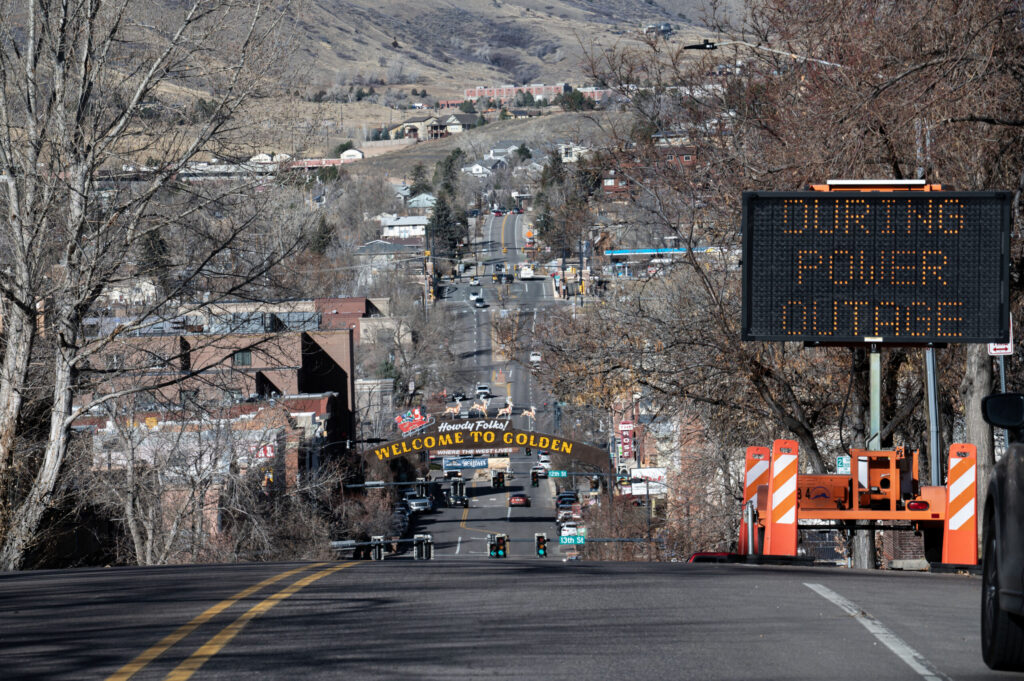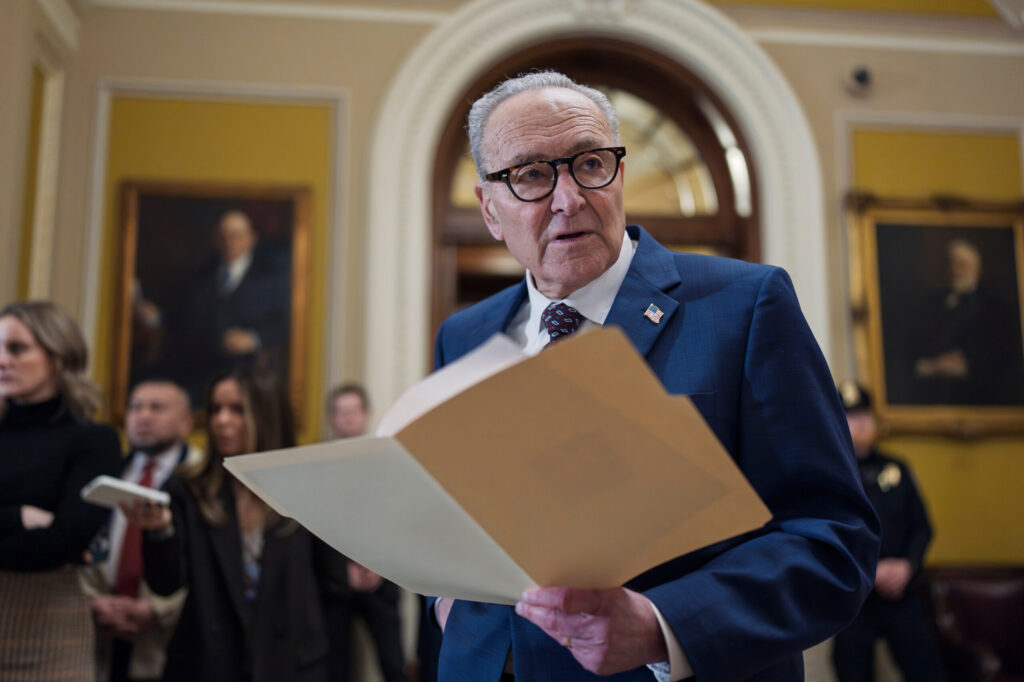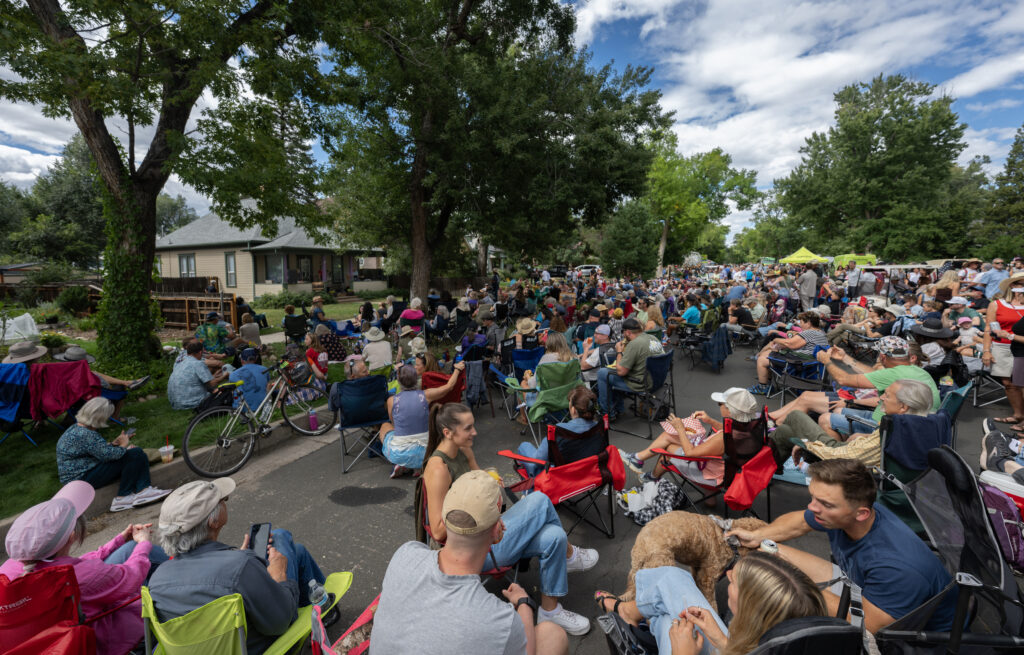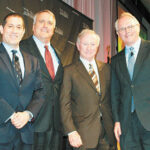YESTERYEAR: Howard Dean attempts to quell Denver DNC union rebellion; Buckley mired
Twenty Years Ago This Week in the Colorado Statesman … When she was elected in 1994, Secretary of State Vikki Buckley became the first African-American woman to take statewide office in Colorado. She had spent 22 years working her way up through the ranks of the secretary of state’s office, and eventually became second in command of the elections division.
Despite her obvious qualifications, Buckley faced difficulties from the start of her administration. Legislators complained that, unlike her predecessor Natalie Meyer, Buckley seldom sent liaisons to monitor and offer advice on legislative activity. Moreover, upheaval among her staff and the amount of time spent filling vacant positions caused some legislators and county clerks to complain that the office took too long to respond to queries. But even when responses from Buckley’s office were forthcoming, sometimes the information was incorrect, according to clerks surveyed by the Legislative Audit Committee.
Beyond the administrative, Buckley was also politically dogged by an ongoing dispute with her former campaign managers, Lynn Ellins and Steve Burton of NoVember Associates over $39,000 in contested campaign fees.
Part of the perception problem, Buckley said in an interview, was the speed at which she took the reins after her election.
“Usually it takes about a one-year transition period for the new secretary to start changing things,” Buckley said. “Because I’d been here so long, I knew what I wanted to do from the start. I took my oath on Jan. 11, and change started on Jan. 12.”
Buckely’s agenda, she said, included an attempt to “provide structure” to the office staff. She wrote policies, she said, which not only defined job descriptions, but also her expectations for professional staff behavior. That upset some, Buckley conceded.
“Change is uneasy and nervous for a lot of people. A lot of them didn’t like what I was trying to do.”
The rapid transition caused many of her former colleagues in the office to apply for positions elsewhere in state government, Buckley said, which meant she had to train many new people.
Higher-level training also created problems, Buckley said, though of a slightly different nature. One of the chief criticisms was the problem of retaining elections officers. Buckley had, by April 11, 1997, already lost two, and, after a lengthy search, hired a third. This caused, the apparent “void” perceived by legislators, county clerks and others who sought information during the first half of her term, Buckley said.
With a lengthy hiring process under the state’s guidelines, Buckley could only interview three candidates at a time, and had to give written explanations of why none were acceptable before she could get three more from the state personnel service. The process ended with the hiring of Bill Compton, who had worked as an elections officer in Alabama.
Perhaps the most serious complaint lodged against the struggling secretary of state, however, involved alleged attempts to buffer her own campaign war chest. According to the legislative audit report, dated November 1996, Buckley attended fundraisers thrown on her behalf, in August 1996, at the home of bingo and gambling lobbyist Freda Poundstone. The audit report noted that, while Buckley had done nothing illegal, taking money from bingo suppliers, operators and licenses “could lead to a perception that these licenses could receive preferential or more lenient treatment from the secretary.”
Buckley said in a statement, “I assume this is a recommendation made to all elected officials that accept contributions. The statement that a contribution could make a licensee believe they would not be regulated equally to any other licensee is purely far reaching and speculative in nature.”
Buckley also acknowledged that some of the bingo criticism was because her oversight was much less confrontational that that of her predecessor.
“It’s better to train people how to avoid problems ahead of time. Once a problem is found, it has to go before an administrative law judge anyway and at that point it’s out of our hands.”
… Ten Years Ago … Fears that union problems would overshadow the 2008 Democratic National Convention in Denver went unaddressed when AFL-CIO President John Sweeney’s flight to Denver was canceled and he missed a meeting between local labor leaders, Denver Mayor John Hickenlooper, and Democratic National Committee Chairman Howard Dean.
Sweeney, who met later with Gov. Bill Ritter, to discuss labor concerns, sounded optimistic in a statement, saying:
“Colorado elected leaders and community leaders share the commitment of union members and leaders to a better future for working families. We share a belief that we must change our country to work for working families — not just a wealthy few. If we all work together, we are confident we can work this out.”
Labor problems had plagued Denver’s bid for the 2008 convention since its inception. A massive stumbling block arose in February 2007, when Ritter vetoed House Bill 07-1072, which would have eliminated a second secret-ballot vote required before a union was authorized to negotiate for unionized employees and make Colorado a “free-bargaining state.”
The veto infuriated national labor leaders because Ritter signed a campaign pledge in 2006 which indicated he would sign such a bill if it came before him. The national AFL-CIO went so far as to threaten to ask the DNC to move the 2008 convention. The AFL-CIO, in a statement, said that they were “determined to pass the legislation again and secure a clear commitment from the governor to sign it.”
That goal was unlikely, since both sponsors of the bill, Rep. Michael Garcia, D-Aurora, and Sen. Jennifer Veiga, D-Denver, said that they wouldn’t reintroduce the bill in 2007.
Nevertheless, Teamsters president James Hoffa Jr., warned Ritter that unless union concerns were addressed, the convention could “blow up” and be choked with picket lines and protests.
“I don’t foresee that happening,” said Denver Host Committee President Elbra Wedgeworth.“In 2004 in Boston, there was a threat of picketing but nothing came of it.”
The former Denver City councilwoman said that most local labor unions were eager to see the convention move forward without a hitch despite the problems Denver has had. “We have a lot of issues that we have resolved. It’s like being from a big family. Do you agree with everybody? No. But you’re still working together, right?”
Speaking at a convention rally, headlined by Dean, Wedgeworth promised the crowd, “While we were once labeled a red part of the country, we come in all shapes, sizes and colors. And the Democratic Party continues to reach higher and wider.”












